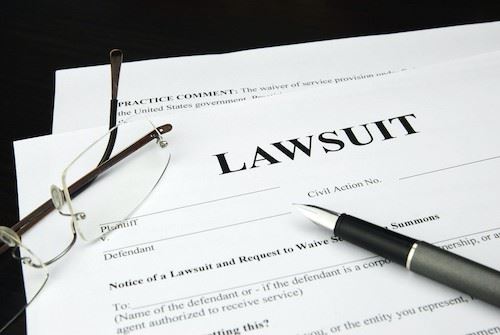
Building a successful personal injury case involves a great deal of work. Even before your case reaches the courtroom, both your attorney and the opposing party’s legal counsel spend months collecting as much evidence as possible. One of the most common ways to gather information is by sending personal injury interrogatories to the other party.
Interrogatories are written questions that help your attorney construct a timeline of the accident, and they allow for a better understanding of who was at fault for the injuries. Keep reading for everything you need to know about the key role interrogatories play in your claim as well as sample interrogatories you may encounter in a personal injury lawsuit.
Personal injury interrogatories are requests for information about an accident. Once a formal lawsuit has been filed, each party involved in the case submits interrogatories to the other party (or parties). Interrogatories are always sent as written questions. The answers to these questions help paint a picture of how each side views the accident. Interrogatories also establish a chronological record of how the incident panned out.

Interrogatory questions cannot be left unanswered, meaning each party must respond to the questions they were given. Moreover, responses to interrogatories must be signed under oath. In other words, the person responding must sign and swear before a notary public that the written answers they’ve provided are truthful and factual to the best of their knowledge. This process helps ensure all parties reveal the whole truth — not just the bits that work in their favor. Lying on interrogatories is considered perjury, and it could result in a fine or jail sentence.
Interrogatory questions are a crucial part of the “discovery phase” of a personal injury case. After an official lawsuit has been filed, all parties engage in discovery to unearth as much information about the accident as possible. Your attorney uses this time to request and exchange key facts and information with the other party’s attorney. Some of the information exchanged could include your healthcare provider, date of birth, social security number, insurance carrier, policy number, and more. This phase allows you and your legal team to hear the other side of the story and better prepare your case for court.
Interrogatories help form the foundation of evidence gathered during the discovery phase. The discovery process also involves:
Though interrogatories and depositions are both essential components of the discovery process, they are very different things. Interrogatories are written reports. They can be sent to and answered from anywhere, and the response must be signed under oath. Depositions are in-person interviews typically given in an attorney’s office, during which a lawyer may question the defendant, plaintiff, or expert witnesses about key facts and events related to the accident.Interrogatories do not need to be filed with the court. Rather, they’re sent back and forth from one party to another. The goal is to allow each side ample opportunity to prepare for trial. Depositions, on the other hand, are videotaped or recorded by a court reporter. The goal is to use depositions as evidence throughout the case.
Though we keep referring to interrogatories as questions, they’re really not. Don’t be surprised when the personal injury interrogatories you receive are not written with a question mark. Instead, interrogatories are phrased as statements, which you can then elaborate on. Interrogatories must leave room for open-ended responses. Attorneys are looking for details about specific information, and “yes” or “no” answers do little for their case.
Consider a texting and driving car accident. A personal injury lawyer would not send an interrogatory that asked: “Do you text and drive?” — this is a yes or no question which limits how much information you might reveal.
Rather, a sample personal injury interrogatory about texting and driving is more likely to be phrased as a statement like this: “Please state whether, on the date of the accident sued upon, (a) you personally or professionally had cellular or other wireless telephone services available to you, and (b) whether there were any cellular or other wireless telephones in your vehicle at the time of the accident sued upon (whether for your account or the account of anyone else).”
The defendant in a personal injury case is the accused at-fault party. When sent from a plaintiff, personal injury interrogatories seek to establish the defendant’s role in the accident. They’re trying to prove the defendant’s negligence caused their injuries.
For example, in a slip and fall accident at Walmart, the plaintiff sends personal injury interrogatories to Walmart. They may seek to prove that the store failed to staff enough employees, thus there weren’t enough employees available to clean up spilled substances. In this case, a personal injury attorney may ask the defendant: “Describe in detail the number of employees and each employee’s job duties on the date of the incident in this case.” If the defendant responds that they did not have sufficient staff to monitor spills across the store, they could be liable for the plaintiff’s injuries.
Alternatively, in a rear-end car accident case, a personal injury lawyer would attempt to pinpoint what caused the defendant to hit the plaintiff’s motor vehicle. The interrogatory questions sent would seek to prove the defendant was negligent or careless. A sample personal injury interrogatory question may be: “Do you wear glasses, contact lenses, or hearing aids? If so, who prescribed them; when were they prescribed; when were your eyes or ears last examined; and what is the name and address of the examiner?” If the attorney can prove the at-fault driver should have been wearing corrective lenses or hearing aids and wasn’t at the time of the accident, it could be grounds for negligence.
The plaintiff in a personal injury case is the injured party and the party that initiated legal charges against the defendant. When the opposing party sends personal injury interrogatories to the plaintiff, they’re most often seeking to prove the injured party partially or fully contributed to the cause of the accident. This course of questioning aims to poke holes in the victim’s story and establish a grain of doubt that the defendant is fully responsible.
For example, in a two-car auto accident, the counsel of the defendant can inquire if the plaintiff was under the influence at the time of the collision. A sample personal injury interrogatory to the plaintiff may be: “Did you consume an alcoholic beverage at the time of the accident? If so, what time did you consume the beverage, how many beverages did you consume, and what is the name and address of the establishment that served you?”

Personal injury interrogatories help construct a timeline of your accident and determine who was at fault. Learn everything you need to know about asking and answering interrogatory questions.
To contain the duration of the discovery process, there is a limit on the number of interrogatories each party can send. In federal court, there is a 25-interrogatories limit. For states, the limit varies per locale; Arizona courts permit 33 standard interrogatories per party. If you reach the limit, you do have the option to request court permission to send more interrogatories. But bear in mind, your attorney will need to file an official request on your behalf.
Both federal and state legislation requires all parties to answer their interrogatories within 30 days of receipt. However, either party can request an extension on the discovery process—including the response time for interrogatories. Just submit an order to the court establishing why you require more time for the discovery phase. The order must be confirmed by a judge.
When answering interrogatories, you should provide as much information as possible. The more both parties expand on their points of view, the easier it is to establish a proper timeline for the incident and find a middle ground. Your answers should be as detailed and as factual as possible.
For example, consider you were asked to describe each act or omission that you believe constituted negligence on the part of the at-fault driver in an automobile accident.
A sample answer may be: “Failure to yield the right of way; failure to yield to posted traffic signals, specifically a red light on the intersection of Smith St. and Hollywood Ave.; failure to drive consistent with weather conditions, including heavy rain.”
Another common sample interrogatory question the plaintiff’s law firm may ask is: “List the full names and addresses of all persons who are believed or known by you, your agents or attorneys to have any knowledge concerning any of the issues in this lawsuit, and specify the subject matter about which the witness knows.”
In this case, your answer would be something along the lines of, “My husband, Mike Brown, was present at the time of the accident. The officer on the scene, Sgt. Gloria White completed an accident report and interviewed both parties. The treating physician, Dr. Gray Nelson, captured medical image testing, diagnosed, and provided medical treatment for all injuries noted in the claim.” Along with this statement, you would also write out the addresses of the persons mentioned. For law enforcement, health care personnel, and other professionals, use their work address.
Constructing a winning personal injury case is no easy task, especially if you’re not a legal professional. Before drafting, answering, or sending interrogatories on your own, consider reaching out to a trusted personal injury law firm. Building a strong attorney-client relationship can not only help you plan the most successful course of action for your cause, but it can also make sending and receiving crucial personal injury interrogatories a whole lot easier.